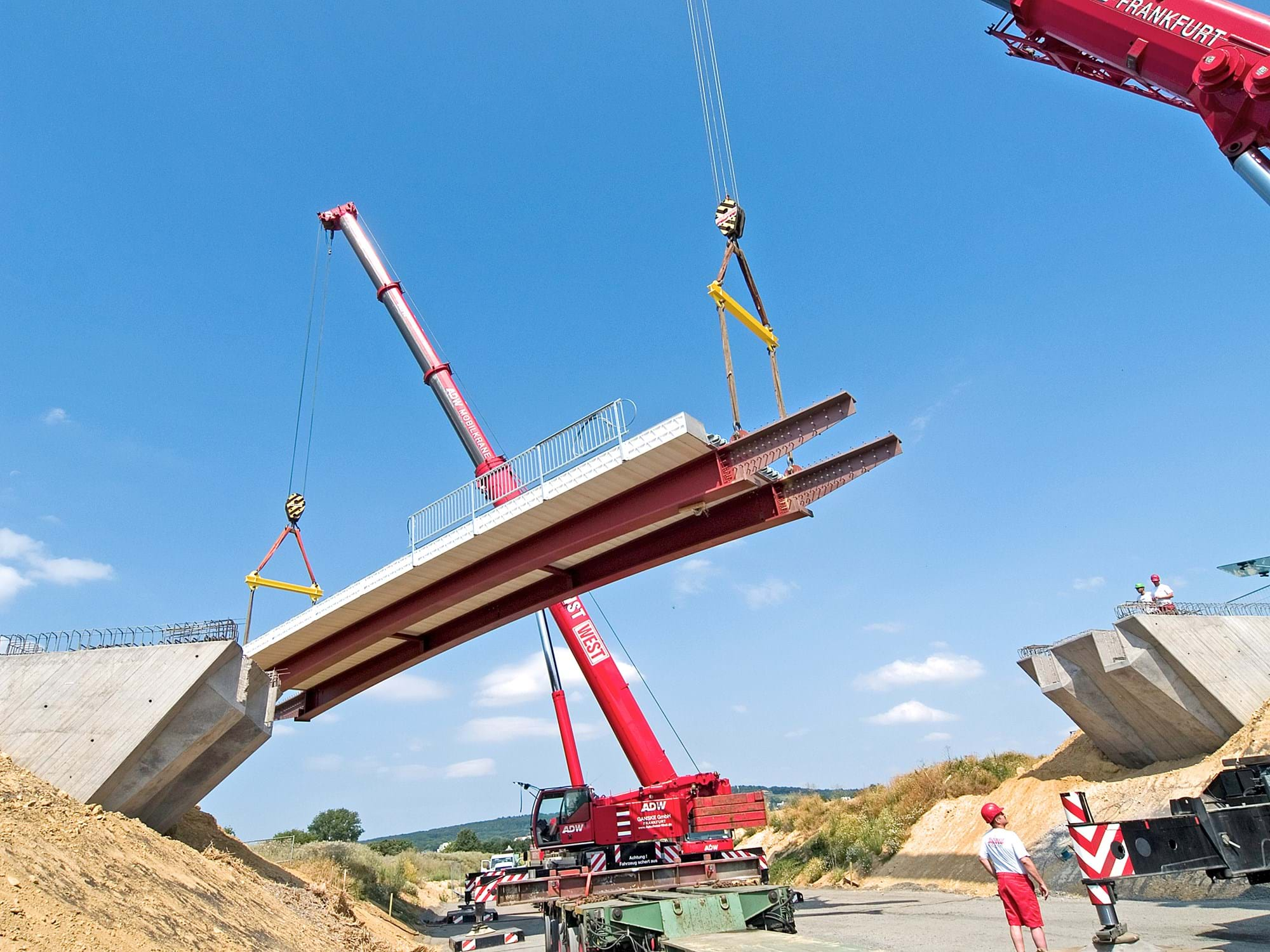

Fiberline Building Profiles A/S
FBD 600 ASSET-Profile, glued to two steel girders, which together form the structure
An innovative GRP bridge has been constructed over the new German B3 Highway at Friedberg near Frankfurt. The bridge is a lightweight structure that was assembled close to the highway and then lifted into position with the minimum of disruption to road traffic.
The 27-metre long bridge comprises two steel beams covered by an innovative multi-cellular GRP deck made of so-called FBD 600 profiles from GRP profiles manufacturer Fiberline. According to Stefan Hodes, press spokesman of the Hessen State Highways Agency, rapid installation and low maintenance costs were the key reasons for adopting the new technology.
“In densely populated areas, conventional bridge building projects very quickly result in long queues of vehicles. This is a key argument favouring the use of GRP bridges as they can be installed in just a couple of hours and also have the advantage of being resistant to corrosion,” says Stefan Hodes.
Around 70% of German’s road bridges are made of concrete and more that 40 years old. They impose an increasingly heavy burden on the road maintenance budget. The new GRP bridge is resistant to road salt and frost, which makes it a future-proofed alternative, says Stefan Hodes.
Another advantage is low weight, which means that bridges can be pre-assembled or prefabricated in much longer lengths than corresponding steel or concrete structures.
While GRP by itself can be used for footbridges and cycle bridges, GRP bridges for carrying heavy traffic are subject to span limitations. To achieve the necessary load-carrying capacity, either carbon composite, which is still very expensive, or a combination of GRP and steel can be used. “Fiberline bridge deck profiles bonded onto steel beams offer a solution that comes closer to conventional solutions in terms of price,” says Professor Jan Knippers of the University of Stuttgart in Germany, who designed the Friedberg bridge.
“Corrosion resistance and rapid installation are probably the key arguments. But our hybrid solution of steel covered by GRP bridge deck profiles is now a close competitor on price,” explains Jan Knippers.
The FBD profile is the result of years of research and development in a project partially funded by the EU and costing EUR 4 million. One of the project’s aims was to find new and more durable construction materials for road bridges.
The first result of this project was Europe’s first GRP road bridge, which opened to traffic in Oxfordshire in the UK in 2002. In addition to Fiberline, other members of the project have included SKANSKA and the British engineering company Mouchel.
In 2006 the UK Highways Agency installed the Mount Pleasant Bridge over the M6 in Lancashire. The Mount Pleasant Bridge won the prestigious National Institution of Highways and Transportation award for 2007.
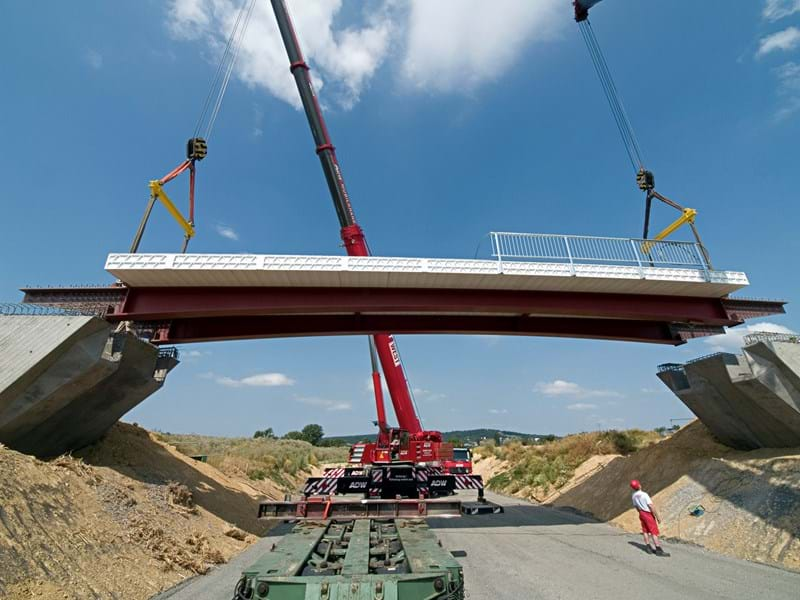
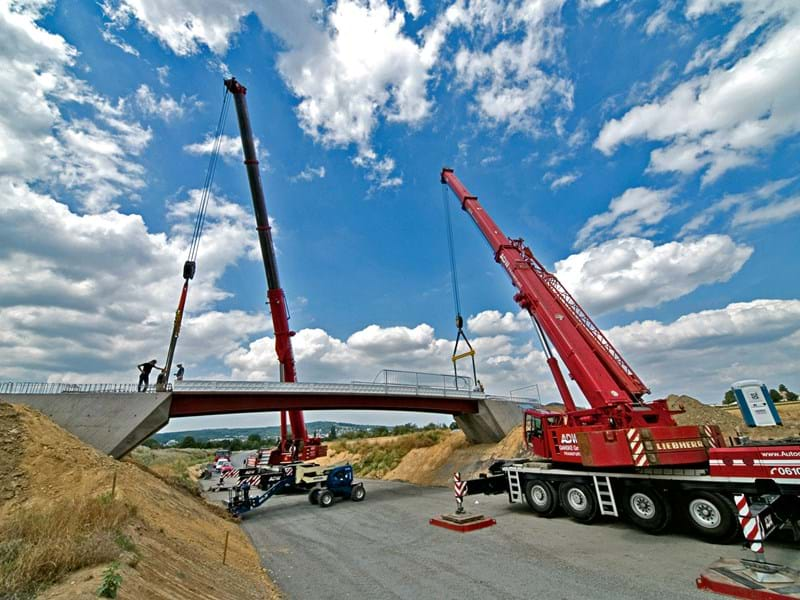
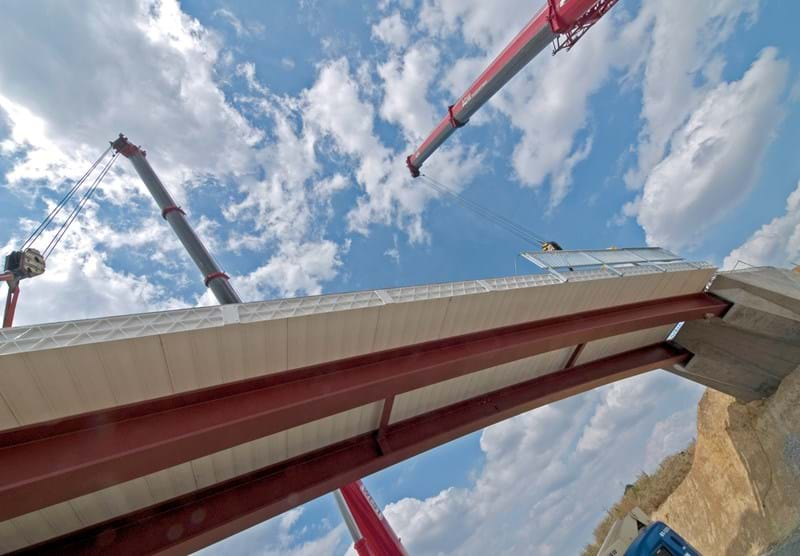
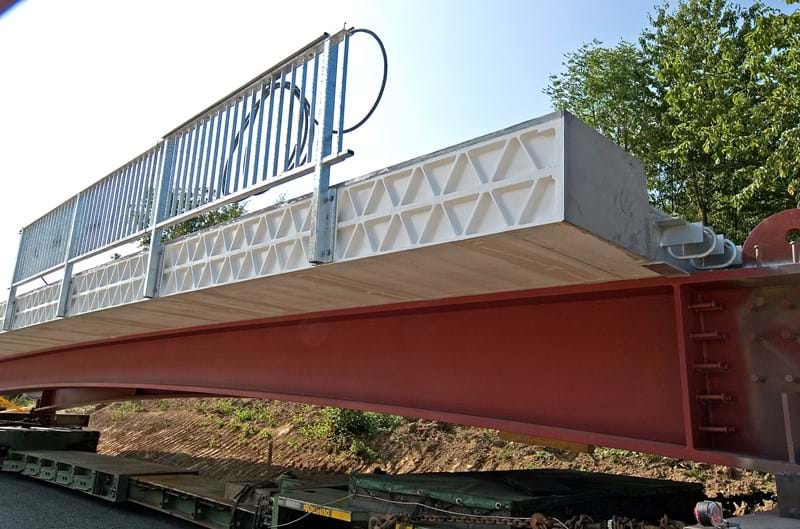
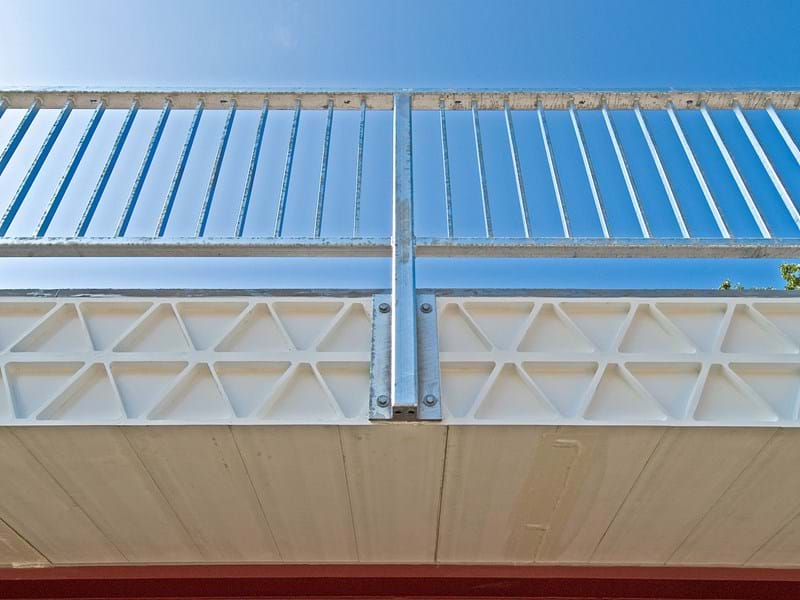
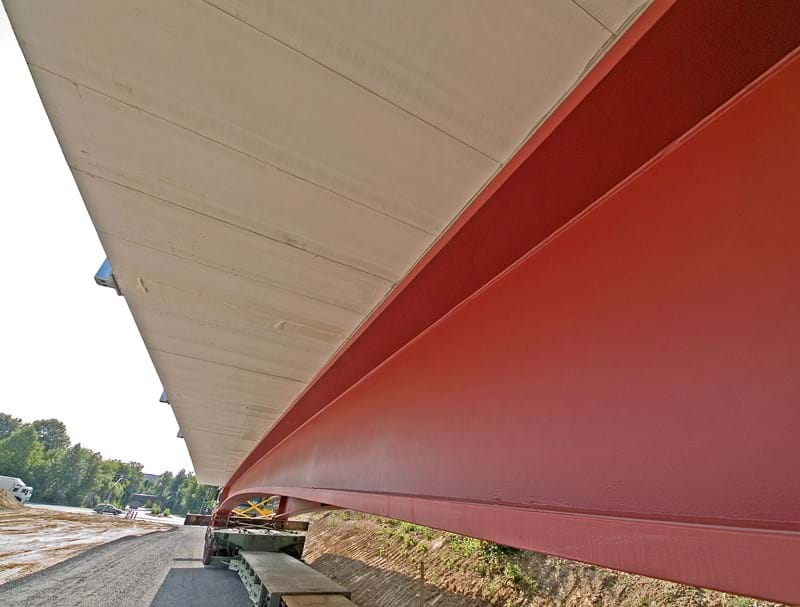
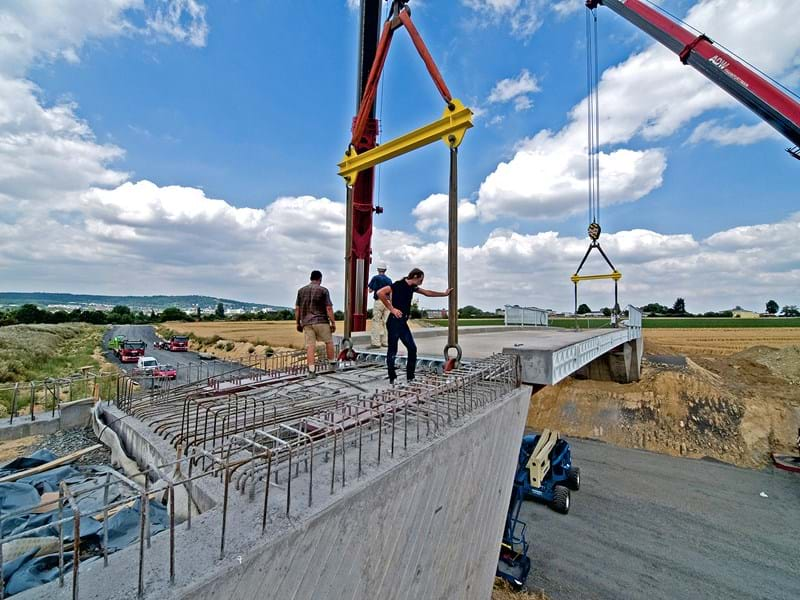
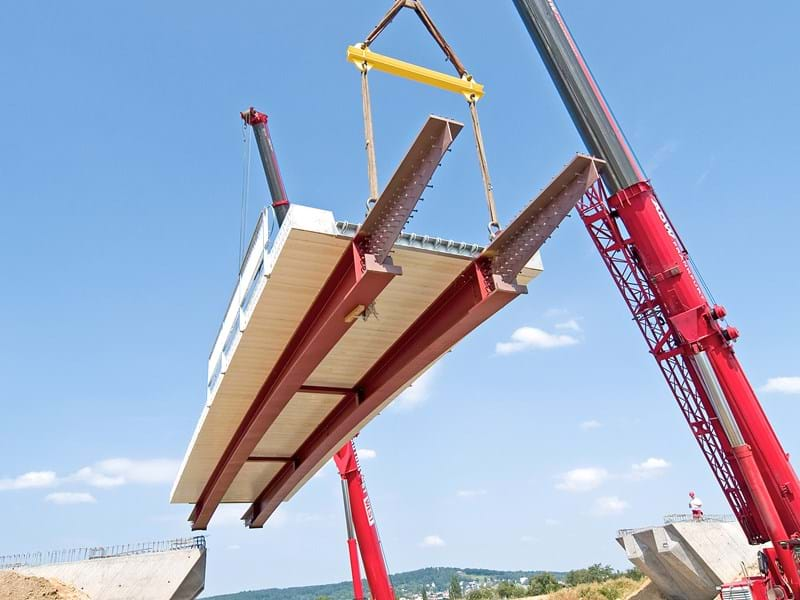
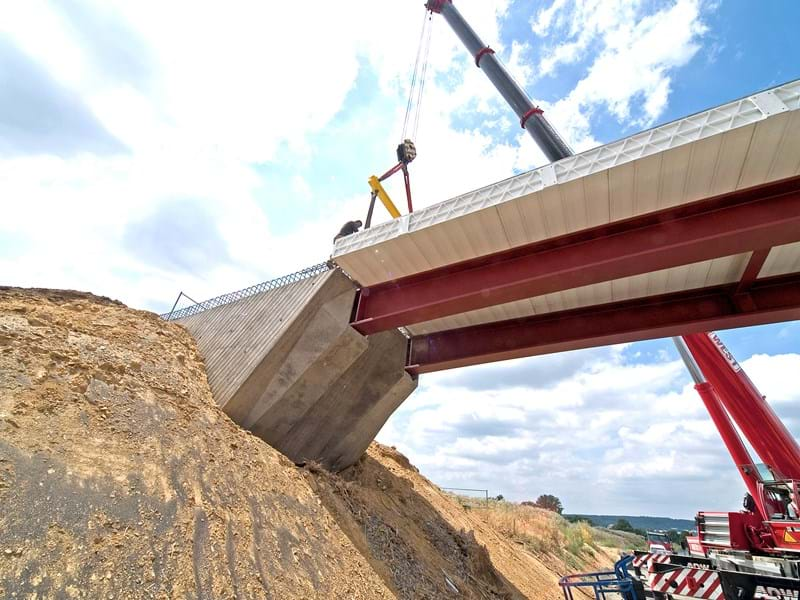
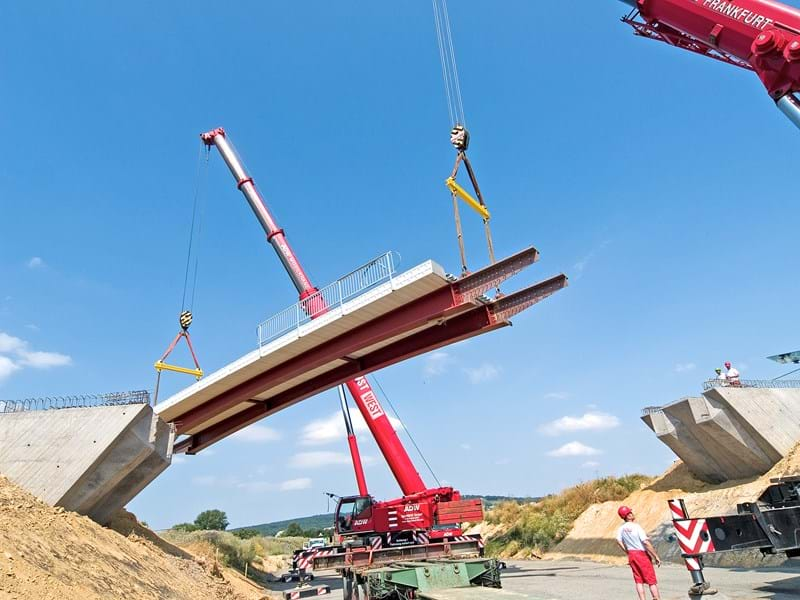
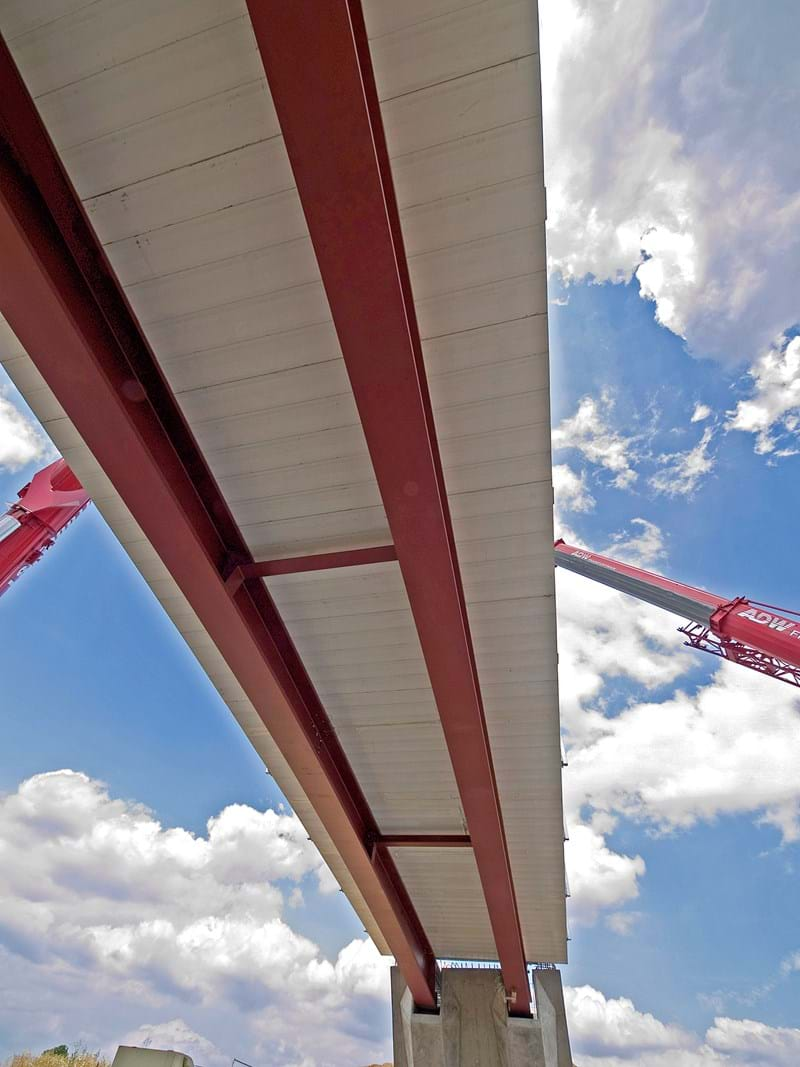











Learn more about GRP road bridge and fibreglass bridge cladding.